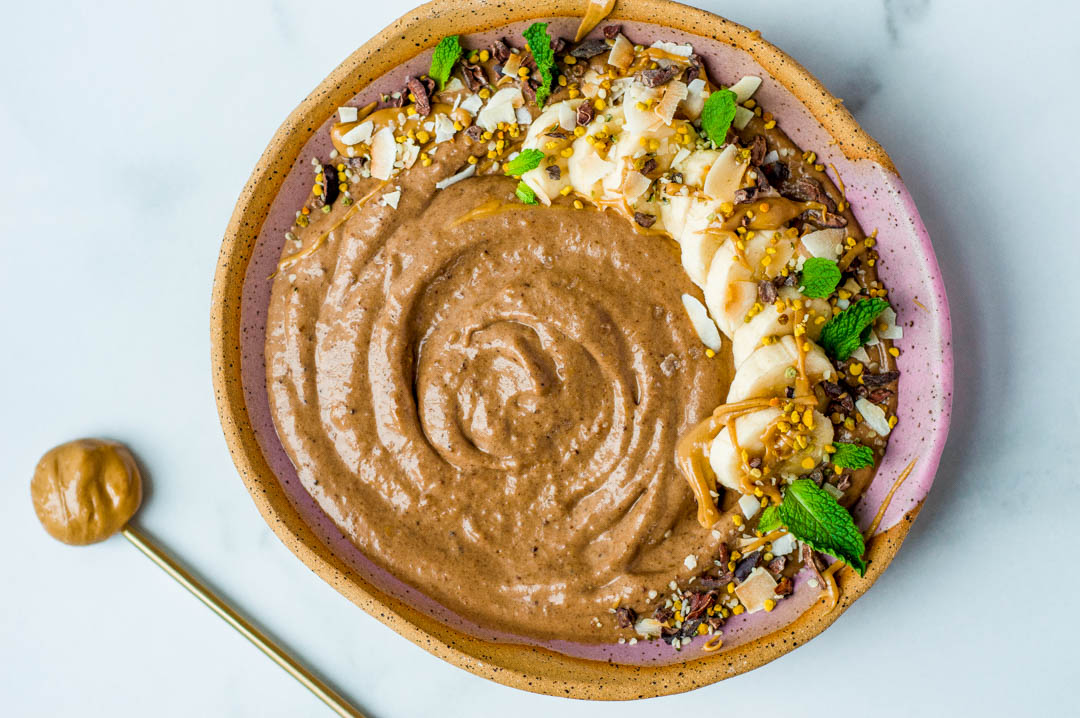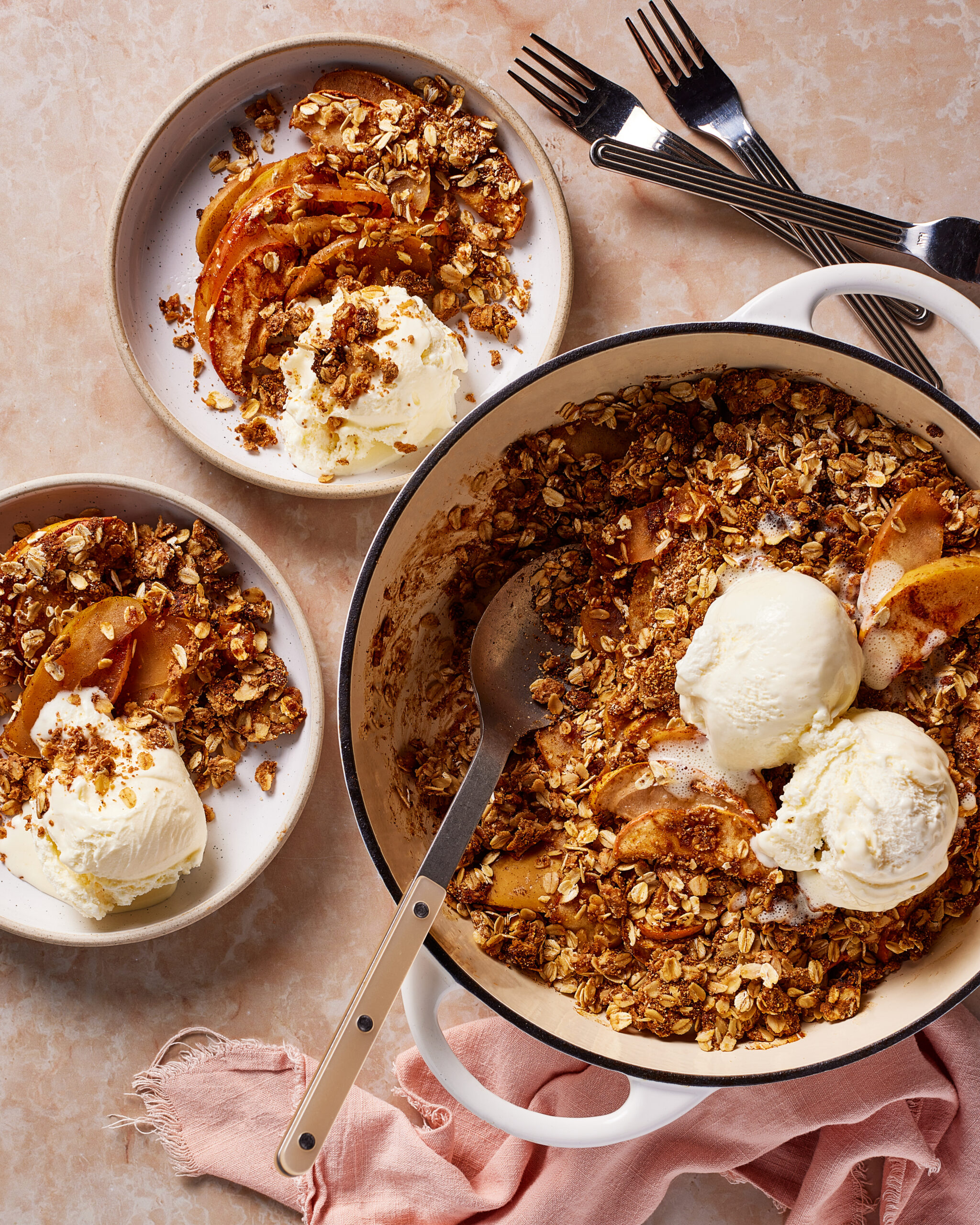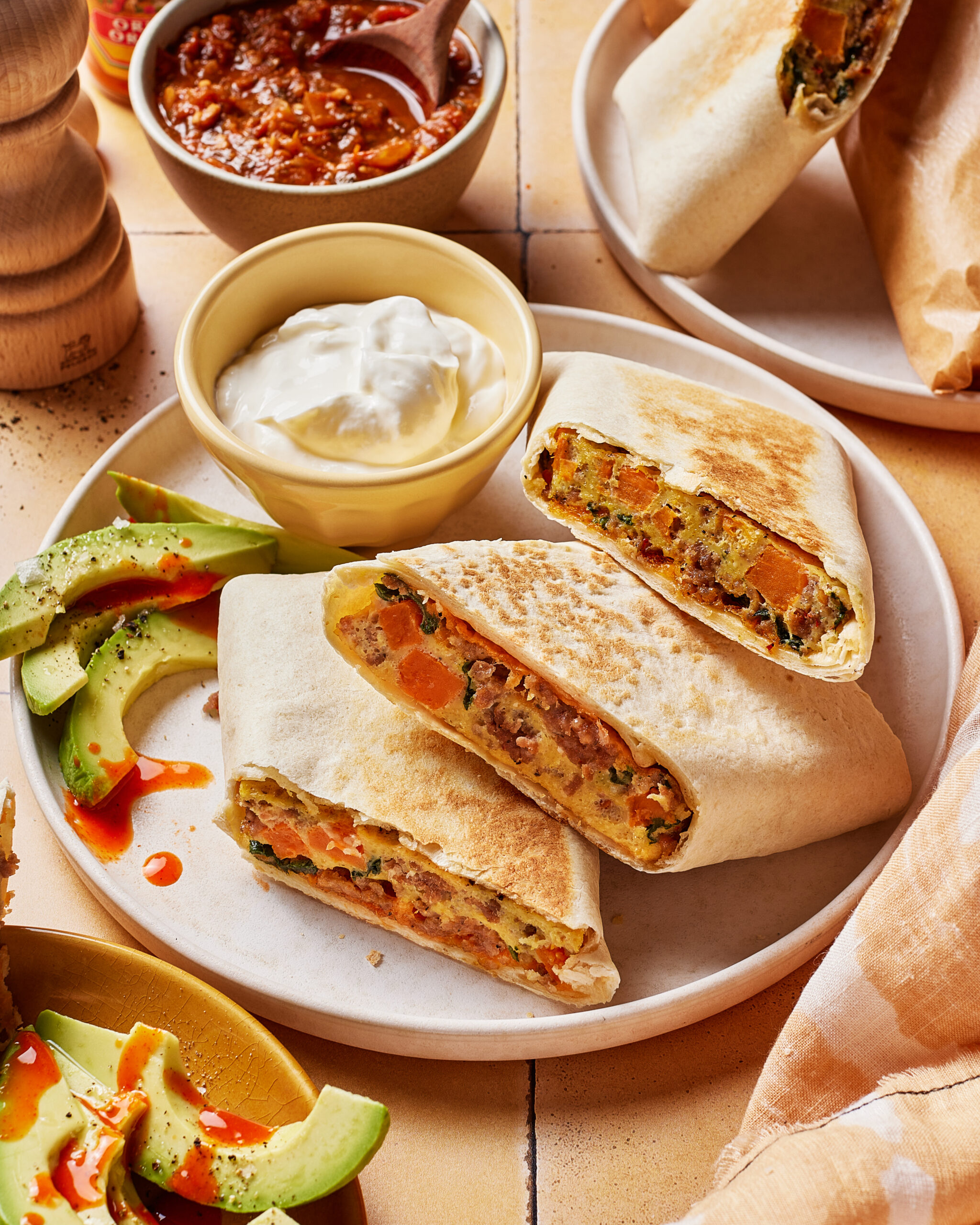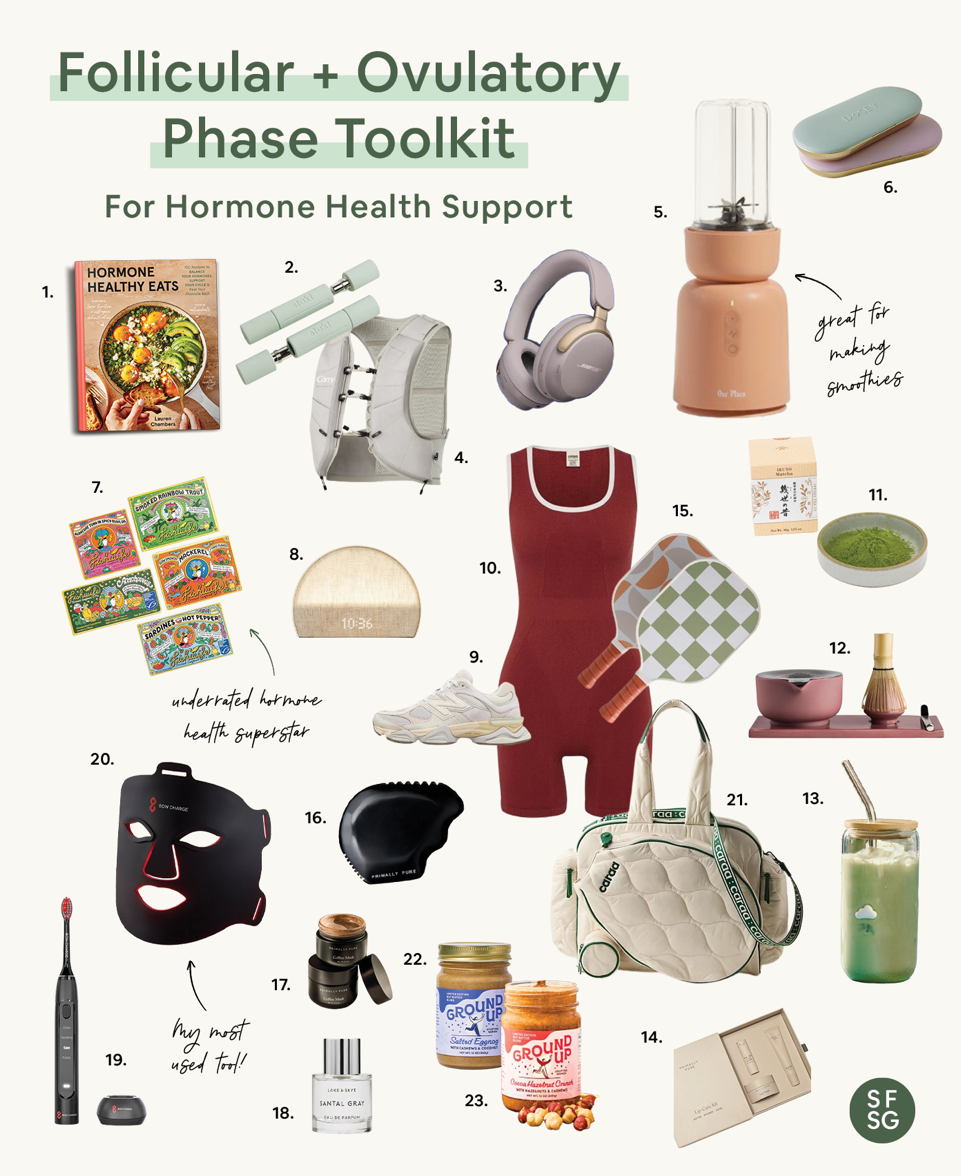recipes
lifestyle
wellness
motherhood
mindset
About
E-Books
Blog
Freebies
partnerships
hi, i'm lauren!
hey there!
I’m on a hot mission to help you balance your hormones & live your best life.
categories
Home
Quiz
Get In Touch
The Course
search:
Cookbook
Recipe key
GF
VG
P
Vegan
Gluten Free
Paleo
DF
Dairy-Free
download now
Join Hormone Healthy Eats!
Become a SFNSG insider to get my monthly Substack, Hormone Healthy Eats! Packed with the latest hormone-healthy recipes
+ tips.
jump to recipe >
WHY FOOD MATTERS FOR FERTILITY
A key component of optimal fertility is obtaining enough nutrients from the food we eat. This is because micronutrients are absolutely essential for hormone production. Without them, our hormones simply cannot do their jobs effectively, which can lead to fertility challenges, typically in the form of irregular ovulation (which often accompanies PCOS and thyroid issues) or a shortened luteal phase (which can prevent implantation or increase chance of miscarriage if your progesterone is low).
Nutrients aren’t only necessary for a healthy cycle and conception, but for a healthy egg, pregnancy and baby as well (which I think we’d all agree is the long-term goal!). In fact, researchers from the Obstetrics and Gynecology Division of the Columbia University Medical Center believe the preconception period to be just as crucial to both mom and baby’s health as what happens once the fetus is in utero.
Because the quality of both the egg and the sperm begin developing 90 days prior to conception, it’s never too early to begin incorporating fertility-boosting foods into your diet, especially if that’s the direction you know you are heading.
**Looking for a plan that includes everything you need (foods, delicious recipes, supplements + effective lifestyle tips) to help you and your partner boost fertility and prepare for conception? Check out my Fertility Boosting Fundamentals Guide.
**Looking for a plan that includes everything you need (foods, delicious recipes, supplements + effective lifestyle tips) to help you and your partner boost fertility and prepare for conception? Check out my Fertility Boosting Fundamentals Guide.
FERTILITY SMOOTHIE RECIPE FORMULA
If you’re looking for an easy way to begin adding more fertility-boosting foods to your routine, look no further than the fertility smoothie (or smoothie bowl, my personal preference because more room for TOPPINGS).
Not only are smoothies easy to make and have the unique ability to taste like a milkshake/dessert, but they’re a sneaky way to crowd in fertility-boosting nutrients that might be more difficult to add into your diet otherwise (i.e. an abundance of veggies and leafy greens, adaptogens or certain spices, seeds, etc.)
Below are the key components you need to build a fertility smoothie that will support your hormones and work to optimize your egg quality.
+ A Clean, Unsweetened Liquid Base
This is important, as many conventional non-dairy milks are still loaded with sugars, shelf-stabilizers or oils that cause inflammation in the body, a root cause of hormone imbalances and infertility. My favorite way to avoid this is by making my own!
I’ll soak one cup of nuts of choice (cashews, pumpkin seeds, macadamia nuts, etc.) in boiling water for 30 minutes (you can skip this step if short on time but the soaking helps to increase bioavailability of the nutrients) then blend it with three cups filtered water, a pinch of sea salt, and an optional date or two to naturally sweeten. Strain through a fine mesh strainer or nut milk cloth and voila! Homemade nut milk. I also like the brands Malk, Native Forest, and Milkadamia for cleaner, store-bought alternatives.
Also, when in doubt, just use good, old-fashioned filtered water! It may not be as sexy, but it does the job when needed (plus if you’re adding in nuts or seeds it will mix with the water to give it that creamy, nut-milk quality taste).
+ A High Quality Protein Source
High quality protein is critical for fertility, as hormones are manufactured from amino acids, and without them your hormones aren’t be able to function optimally.
Unfortunately, there’s a lot of junk out there when it comes to protein sources (especially if you’re looking for it in the form of a powder to add to smoothies), as most are quite processed and contain inflammatory ingredients like added sugars and shelf-stabilizing chemicals. My favorite clean protein protein powder is Bulletproof’s Collagen Protein, which has minimal ingredients and is sourced from pasture-raised cows without any added hormones.
If you’re looking for a vegetarian option, adding a serving of hemp hearts is my preferred option!
+ A Dose of Healthy Fats
Monounsaturated fats such as extra-virgin olive oil, avocado, cold-water fish (salmon, sardines), pumpkin seeds and walnuts are rich in omega-3 fatty acids that work to regulate hormones, increase cervical mucus, promote ovulation, improve blood flow to your reproductive organs and boost the health of your eggs.
Additionally, saturated fats (such as coconut oil or butter, grass-fed ghee or butter, etc.) contribute to healthy levels of cholesterol, and cholesterol is necessary to make sex hormones (estrogen, testosterone and progesterone). Consuming this type of fat helps to balance hormones and improve fertility and conception odds, as well as to help your babies brains fully develop.
My favorite fats to add to smoothies are avocado, coconut butter and nut + seed butters like cashew, walnut, sunflower or peanut.
+ Leafy Greens & Frozen Veggies
Dark, leafy greens like spinach, kale and swiss chard are rich in essential prenatal nutrients like iron (especially important when you’re menstruating), calcium and magnesium (help your body utilize estrogen and progesterone more effectively) and folate (which also protects against birth defects in the brain and spine that can develop in the first few weeks of pregnancy).
Frozen veggies (cauliflower, zucchini, peas, sweet potatoes or squash all work well) are also loaded with plenty of fiber to regulate blood sugar and digestion (key pillars of overall hormone balance) and have mild flavors that tend to work well in sweet smoothies.
+ Added Fiber
Getting enough fiber into your diet is a crucial component of gut health, and we now know that gut health is intricately linked to hormone health and fertility.
This is because when gut bacteria becomes unbalanced (due to exposure to toxins, processed food, alcohol, caffeine or sugar, stress, etc.), food and nutrients aren’t absorbed well, and larger molecules are able to cross the gut wall, causing food sensitivities and increasing inflammation in the body. This can provoke an immune response and trigger an autoimmune condition if left untreated, leading to hormone disruption, such as impaired ovulation or progesterone production that results in infertility.
Fiber from plants (see above) is key, so as long as you’re adding in 1-2 cups of veggies and fruits you should be getting a decent dose. For optimal results, I like to bulk up my smoothie by adding in either seeds like chia and flax or prebiotic fiber to support good gut bacteria growth and keep blood sugar levels stable.
+ Optional Fertility-Boosting Superfoods
This is where it starts to get really fun, flavor and benefits-wise (but keep in mind these can be more expensive/less budget-friendly, so plan accordingly).
While there are plenty of amazing options out there, these are a few of my fertility smoothie faves:
+ Maca Powder — An adaptogenic root from the Andes mountains used for over two millenia to promote fertility in both men and women. Has a caramel-like flavor that tastes great mixed in with chocolate or nut-butter based smoothies. Make sure to buy organic and gelatinized for optimal nutrient absorption.
+ Cinnamon — Works to regulate blood sugar, a key pillar of hormone balance and fertility. Adds a sweet taste without any sugar. Helps mask the taste of greens/veggies. I especially love the Ceylon varietal for taste and benefits.
+ Cacao — A rich source of magnesium, which works to lower cortisol levels in the body that, if too high, can delay or prevent ovulation. Makes smoothies taste rich and chocolatey. I love this brand.
+ Turmeric — Improves blood flow to the uterus, necessary for embryo implantation and a healthy pregnancy. Works really well with cinnamon and ginger to create a “golden milk” flavored smoothie.
+ Ginger — Works to lower inflammation tied to fibroids, cysts and endometriosis. Adds a warming, slightly spicy taste that compliments sweet potato or squash-based smoothies.
+ Bee Pollen + Royal Jelly — Numerous studies attribute both bee pollen and royal jelly to boosting reproductive health and fertility in both men and women. I like to sprinkle bee pollen on top of bowls or use a serving of royal jelly in green or tropical-based (i.e. coconut, pineapple, etc.) smoothies.
+ Celtic Sea Salt –– I’m a huge fan of adding a pinch (about 1/4 tsp) of sea salt to smoothies as it truly enhances the smoothie’s sweet taste AND adds a healthy dose of minerals that work to reduce toxic waste in the body and promote optimal sulfate levels necessary for a fertile environment.
BOTTOMLINE
The more consistently you work in a variety of nutrient-dense foods into your diet, the more equipped your hormones are to carry out all of the functions necessary to create a fertile cycle and healthy egg and environment for your future baby.
Smoothies are a great way to get started, as they’re an easy way to sneak in an abundance of these nutrients. Follow the formula above to make your own fertility smoothies, or if you need help getting started try out this decadent and delicious Dark Chocolate Avocado Fudge Fertility Smoothie Recipe below.
Looking for more delicious recipes to support a healthy preconception, pregnancy + baby? Check out my Fertility Boosting Fundamentals Guide.
MORE FERTILITY RESOURCES YOU MAY FIND HELPFUL
+ Fertility Boosting Foods FREE Download
+ Trying To Get Pregnant? These Fertility-Boosting Foods + Recipes May Help
+ How to REALLY Tell If You’re Ovulating + Best Fertility Awareness Methods
Dark Chocolate Avocado Fertility Smoothie
This creamy + delicious fertility smoothie recipe is designed to help you balance your hormones + optimize your fertility naturally.
|
PREP TIME: |
TOTAL TIME: |
|
00:00 Mins |
00:10 Mins |
Author: Lauren Chambers
Servings: 1
Recipe Type: smoothie, breakfast, snack, treat
Cuisine: American
Ingredients
- 1 cup clean, unsweetened nut milk (add more to thin out for keep as is for an incredibly thick smoothie bowl texture)
- 1 serving chocolate bone broth protein powder (I love this brand)
- 1 heaping tbsp ground flaxseed
- 1 heaping tbsp cacao powder
- 1 heaping tbsp cacao nibs
- 1 tsp ceylon cinnamon
- ½ tsp celtic sea salt
- 1-2 dates, pitted (can also swap for 1-2 tbsp honey or maple syrup)
- ¼ of a large or ½ of a small ripe avocado, pitted + peeled
- 1 heaping tbsp cashew, almond, peanut or other nut butter
- 1 large handful (about 1 cup) frozen spinach, swiss chard, kale or other leafy green
- ½ cup frozen cauliflower (optional but adds fiber w/o affecting the taste)
- ½ frozen banana
- Optional superfood add-in’s: maca root powder or chaga mushroom powder **use code SOFRESH10 to save 10%
Instructions
- Add all ingredients in a high speed blender and mix until smooth and creamy.
- Enjoy right away with your favorite toppings.
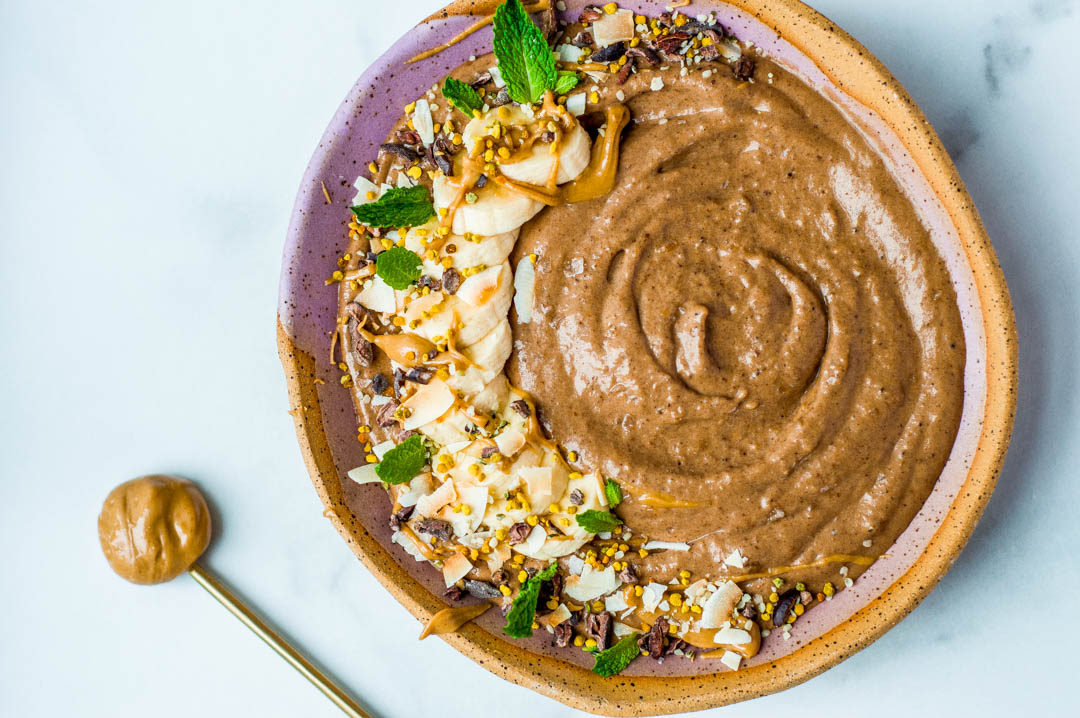
If you loved that...
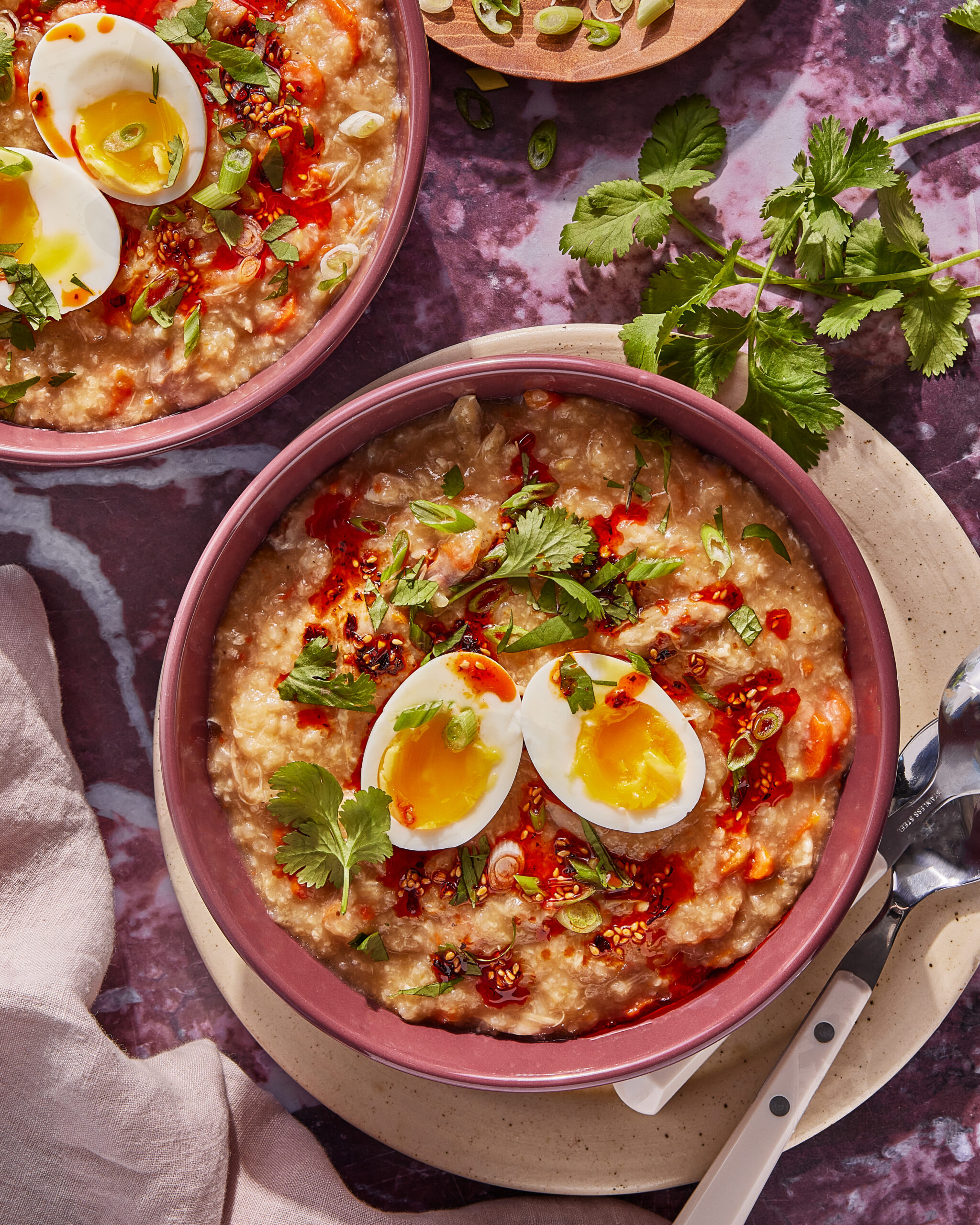
01.

02.
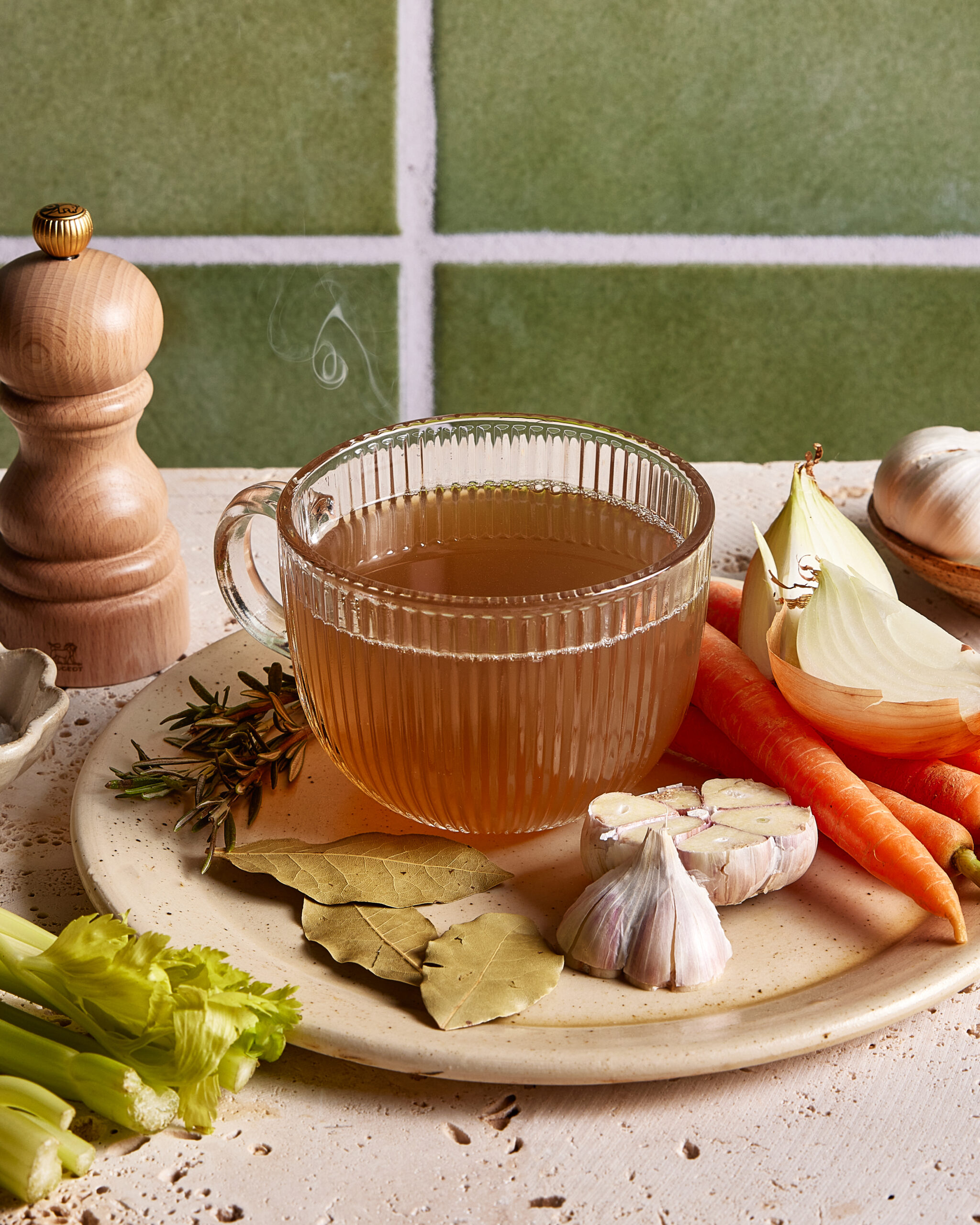
03.
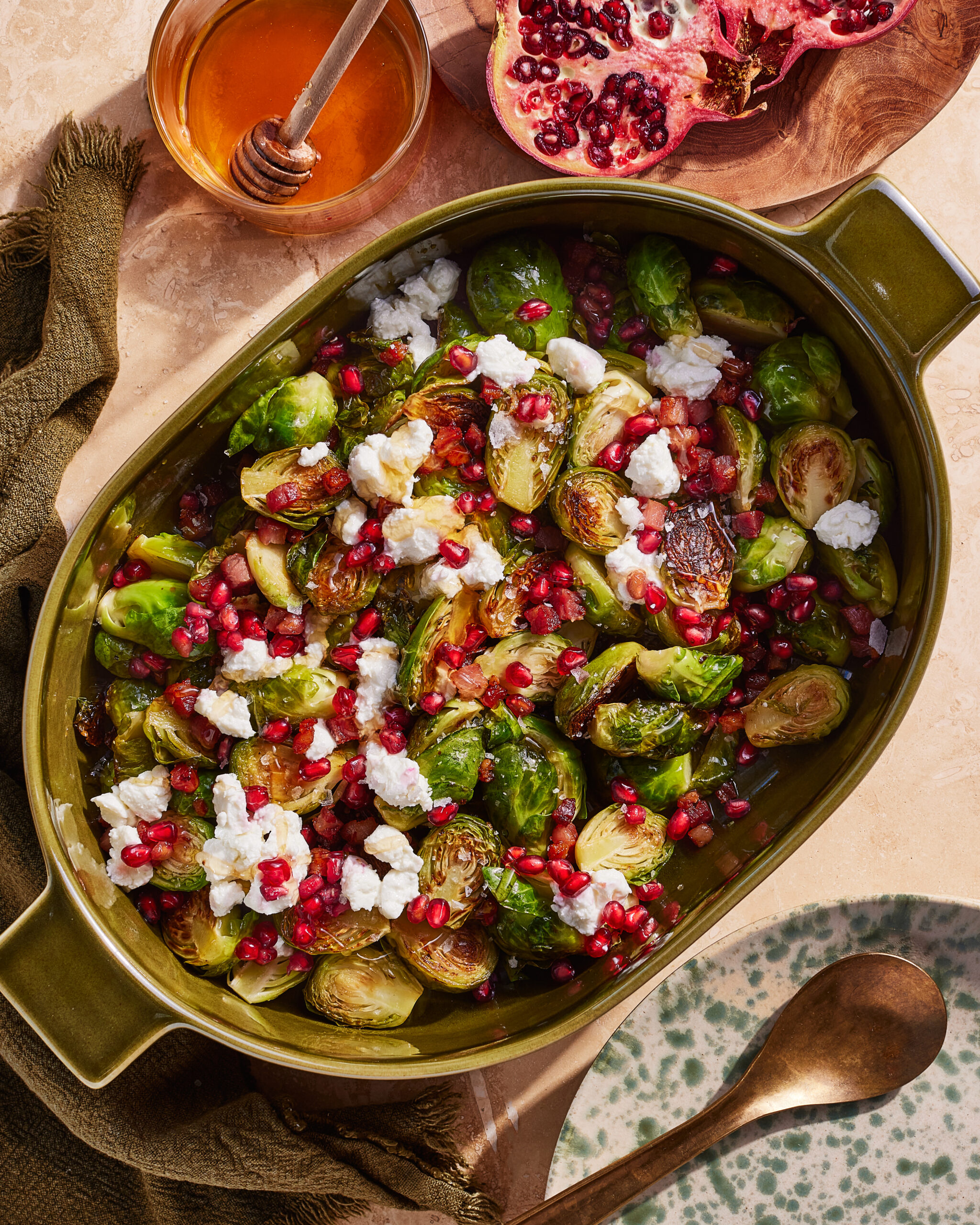
04.
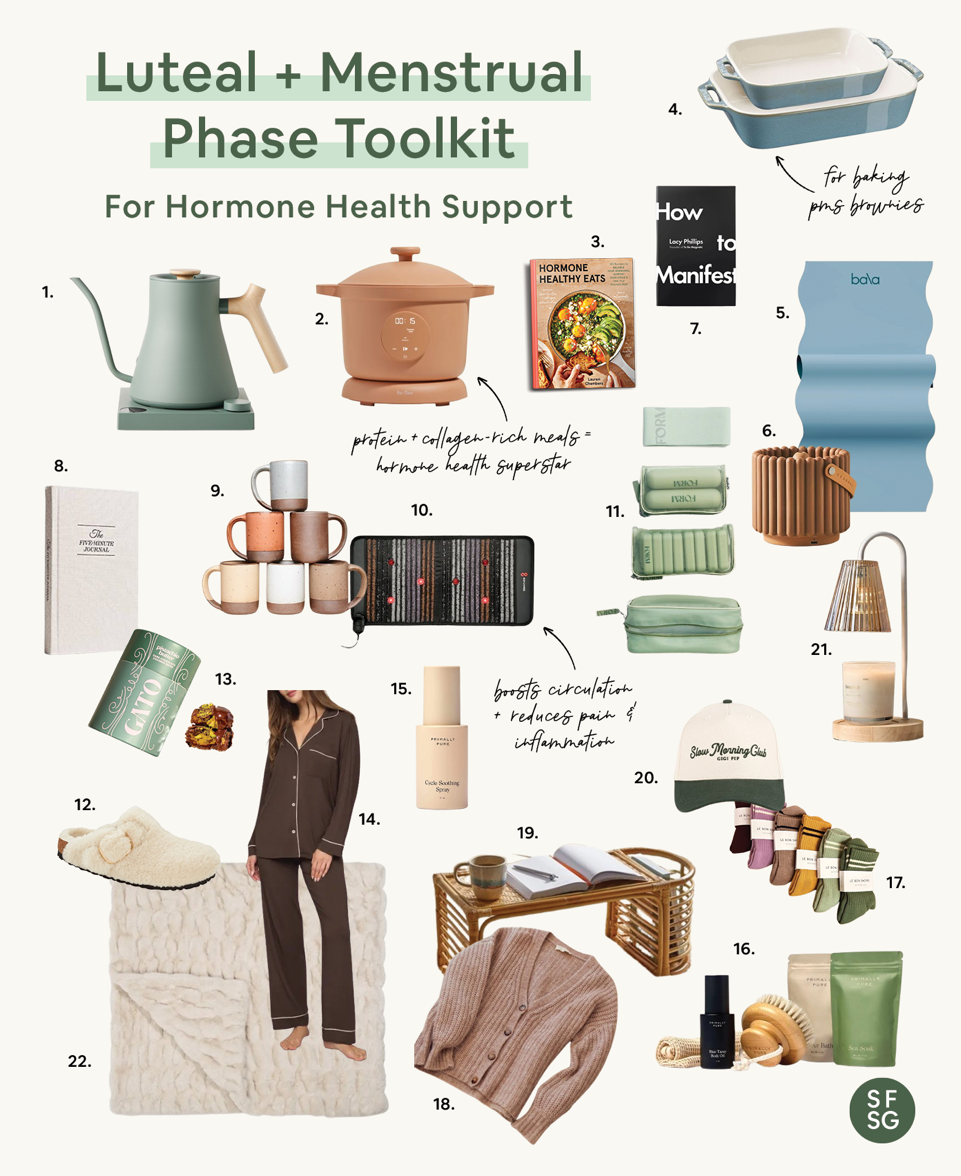
05.
hey!
Keep Browsing
Site
Keep Browsing
Site
the
about
e-books
blog
downloads
quiz
Welcome friend, I'm lauren.
I’m honored to support you on your journey to optimal hormone health + happiness. Thanks for being here babe.
